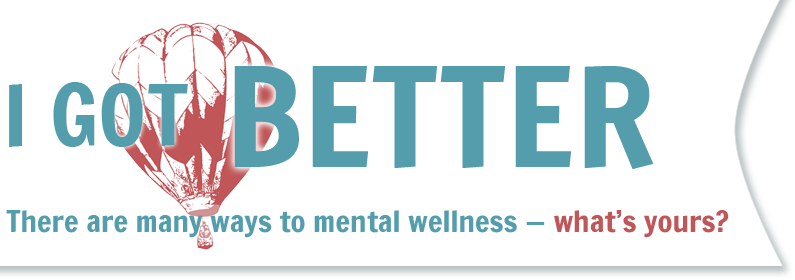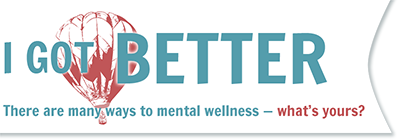Your Life Has Meaning
Cyndi McKnight; Middletown, CT

During your mental health care, have you often felt hopeless about your chance of getting better?
Yes. The possibility of my getting better was not even considered plausible by either myself or workers in the mental health system I encountered until recently. I was often told (and believed) that I would be dealing with emotional problems the rest of my life. How is hope supposed to exist in such an environment of thought?
Has a mental health provider ever told you that you could reach a personal goal despite your psychiatric diagnosis (for example, education, career, independent housing, relationship, children, etc.)?
Yes. Education has always been important to me and in more recent years has been encouraged by a select few in the local mental health system. The initiation of pursuing my Masters degree was self-motivated however.
Has a mental health provider ever told you that you could not reach a personal goal because of your psychiatric diagnosis (for example, education, career, independent housing, relationship, children, etc.)?
Yes. At one point a few years ago, I was told I would never be able to work again or get off my disability benefits. Having children has almost never been discussed by anyone like it was a taboo subject.
If you overcame hopelessness that you could get better from a mental health or emotional problem, was there a turning point for you?
I would say that I have reached a point where hopelessness is not a part of my life anymore. This has happened relatively recently. It has happened as a result of several factors as opposed to a single experience or turning point. Moving beyond hopelessness for me has been more of a process than a happening. I also need to say that I have found the most hope outside of a traditional mental health system. Finally realizing that that my getting better from emotional issues will happen independent of a traditional mental health system has been huge in losing a sense of hopelessness in my life.
Tell us what recovery means to you. How would you define recovery from mental health or emotional problems in your own words?
Recovery to me means leading a self-determined life with goals that I choose not ones that are chosen for me by someone else. Deciding for myself what will bring peace and contentment to my life. Being free of the fear of being locked up based on someone else’s opinion of what constitutes “being a danger to myself or gravely disabled”. Having a support system consisting of people outside of the mental health system. Being at peace with who I am and how I can help others have hope.
If you could send a brief message to someone receiving mental health care today who is feeling hopeless about getting better, what would you say?
Getting better is possible for anyone. It is often a process which may at times feel tedious and frustrating. Do not give up on yourself. Be patient with yourself and treat your self with gentleness and kindness. You are worth the effort it takes to get better. Find out what your passion is in life and pursue it. Do not let others define who you are by labeling you. Believe that you are a good person with a purpose in this world. Your life has meaning.
Can you give examples showing you have gotten better from a mental or emotional problem, such as how you are doing well or accomplishing goals you have chosen?
1) I am more content and at peace with myself 2) I am running my own small busines doing photography and graphic arts 3) I have a good circle of supportive friends 4) I am in the process of writing a book which I am also illustrating 5) I have lost most of the anger and bitterness I held about my family upbringing 6) I have strong spiritual beliefs and practices 7) I believe I can help others.


